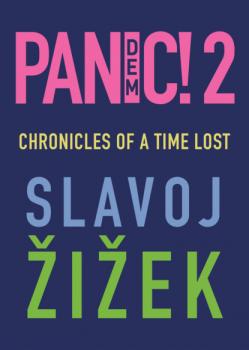ТОП просматриваемых книг сайта:
Афоризмы и цитаты
Различные книги в жанре Афоризмы и цитаты, доступные для чтения и скачиванияАннотация
It is easy to be persuaded that Mr. John Bigelow's edition of 'The Works of Benjamin Franklin' is likely to be the most complete, the most scholarly and acccurate, the 'Federal' edition. Mr. Bigelow was confessedly the foremost authority on Franklin. Beside the material now in print, carefully collated for the present purpose, so far as possible, with the original manuscripts, he has had free use of the supplementary Franklin MSS. purchased by the State Department in 1881, and not published before his work, and the autobiography has been printed for the first time in any collected edition of Franklin's Works, from the original manuscript, which was in Mr. BigeIow's possession. Mr. Bigelow promises upwards of 350 letters and documents which have never appeared in any previous collection, beside a thorough revision of the text throughout, and a new, chronological, arrangement of matter. The notes and other editorial additions are limited strictly to the illustration of the text. This is volume twelve out of twelve, covering the years 1788 through 1790.
Аннотация
It is easy to be persuaded that Mr. John Bigelow's edition of 'The Works of Benjamin Franklin' is likely to be the most complete, the most scholarly and acccurate, the 'Federal' edition. Mr. Bigelow was confessedly the foremost authority on Franklin. Beside the material now in print, carefully collated for the present purpose, so far as possible, with the original manuscripts, he has had free use of the supplementary Franklin MSS. purchased by the State Department in 1881, and not published before his work, and the autobiography has been printed for the first time in any collected edition of Franklin's Works, from the original manuscript, which was in Mr. BigeIow's possession. Mr. Bigelow promises upwards of 350 letters and documents which have never appeared in any previous collection, beside a thorough revision of the text throughout, and a new, chronological, arrangement of matter. The notes and other editorial additions are limited strictly to the illustration of the text. This is volume three out of twelve, covering the years 1753 through 1763.
Аннотация
Dieses Buch beginnt dort, wo die meisten Sisi-Filme enden: Ab ihrem 40. Lebensjahr zog sich die Kaiserin völlig aus der Öffentlichkeit zurück. Ihr Faible für die Morbidität des Fin de Siècle, ihre Leidenschaft für Mythologie und Nietzsche, all dies trug zu der Entstehung des Mythos um ihre Person bei. Zeitdokumente belegen ein melancholisches Bild der «ewig jungen» Schattenkaiserin, die geradezu fasziniert von Geisteskrankheit, Mystik und Verfall war. Eine Fotoreportage über den Tod Elisabeths und ihre Überführung nach Wien wird hier erstmals vollständig veröffentlicht. Neue Fragen zu biografischen Aspekten, wie ihre Affinität zur republikanischen Schweiz oder Ansichten zur Lebensreformbewegung werden beantwortet. Und wer war eigentlich der Anarchist und «Erlöser» Luigi Lucheni, der Sisi ihren sehnlichsten Wunsch unwissentlich erfüllte: "Ich wollte, meine Seele entflöge zum Himmel durch eine kleine Öffnung des Herzens …"
Аннотация
В сборнике представлена оригинальная подборка избранных высказываний, крылатых слов, оригинальных мыслей, парадоксов, афоризмов знаменитых, малоизвестных и неизвестных представителей различных эпох и народов.
Книга адресована широкому кругу читателей.
2-е издание
В формате PDF A4 сохранен издательский макет.
Аннотация
What do sex doll sales, locust swarms and a wired-brain pig have to do with the coronavirus pandemic? Everything—according to that “Giant of Lubliana,” the inimitable Slovenian philosopher Slavoj iek. In this exhilarating sequel to his acclaimed Pandemic!: COVID-19 Shakes the World , iek delves into some of the more surprising dimensions of lockdowns, quarantines, and social distancing—and the increasingly unruly opposition to them by “response fatigued” publics around the world. iek examines the ripple effects on the food supply of harvest failures caused by labor shortages and the hyper-exploitation of the global class of care workers, without whose labor daily life would be impossible. Through such examples he pinpoints the inability of contemporary capitalism to safeguard effectively the public in times of crisis. Writing with characteristic daring and zeal, iek ranges across critical theory, pop-culture, and psychoanalysis to reveal the troubling dynamics of knowledge and power emerging in these viral times.
Аннотация
This important intervention interrogates keystone features of the dominant European theoretical landscape in the field of populism studies, advancing existing debates and introducing new avenues of thought, in conjunction with insights from the contemporary Latin American political experience and perspectives. In each essay – the title a nod to the influential socialist thinker José Carlos Mariátegui, from whom the authors draw inspiration – leading Argentine scholars Paula Biglieri and Luciana Cadahia pair key dimensions of populism with diverse themes such as modern-day feminism, militancy, and neoliberalism, in order to stimulate discussion surrounding the constitutive nature, goals, and potential of populist social movements. Biglieri and Cadahia are unafraid to court provocation in their frank assessment of populism as a force which could bring about essential emancipatory social change to confront emerging right-wing trends in policy and leadership. At the same time, this fresh interpretation of a much-maligned political articulation is balanced by their denunciation of right-aligned populisms and their failure to bring to bear a sustainable alternative to contemporary neo-authoritarian forms of neoliberalism. In their place, they articulate a populism which offers a viable means of mobilizing a response to hegemonic forms of neoliberal discourse and government.
Аннотация
The concept of free will is profoundly important to our self-understanding, our interpersonal relationships, and our moral and legal practices. If it turns out that no one is ever free and morally responsible, what would that mean for society, morality, meaning, and the law? Just Deserts brings together two philosophers – Daniel C. Dennett and Gregg D. Caruso – to debate their respective views on free will, moral responsibility, and legal punishment. In three extended conversations, Dennett and Caruso present their arguments for and against the existence of free will and debate their implications. Dennett argues that the kind of free will required for moral responsibility is compatible with determinism – for him, self-control is key; we are not responsible for becoming responsible, but are responsible for staying responsible, for keeping would-be puppeteers at bay. Caruso takes the opposite view, arguing that who we are and what we do is ultimately the result of factors beyond our control, and because of this we are never morally responsible for our actions in the sense that would make us truly deserving of blame and praise, punishment and reward. Just Deserts introduces the concepts central to the debate about free will and moral responsibility by way of an entertaining, rigorous, and sometimes heated philosophical dialogue between two leading thinkers.
Аннотация
Von der Anthropometrie über die Partizipation bis hin zur Psychotherapie wird Fotografie als Methode verwendet – nämlich dazu, um bestimmte neue Situationen herbeizuführen. Maja Jerrentrup legt mit diesem Buch eine Einführung in verschiedene derartige Nutzungen der Fotografie vor – einschließlich einer begrifflichen Einführung und einer Diskussion von Problemen, die sich beispielsweise ergeben aufgrund historischer Belastung – wie etwa in der Ethnographie –, noch vorhandener großer Forschungsdesiderate – wie in der Fotopsychologie – oder wegen fotografischer Techniken, die bei partizipativen Methoden hinderlich sein können.
Jerrentrup gibt uns faszinierende Denkanstöße, die dazu beitragen, sich mit Fotografie auf neue Weise auseinanderzusetzen.
Jerrentrup gibt uns faszinierende Denkanstöße, die dazu beitragen, sich mit Fotografie auf neue Weise auseinanderzusetzen.










